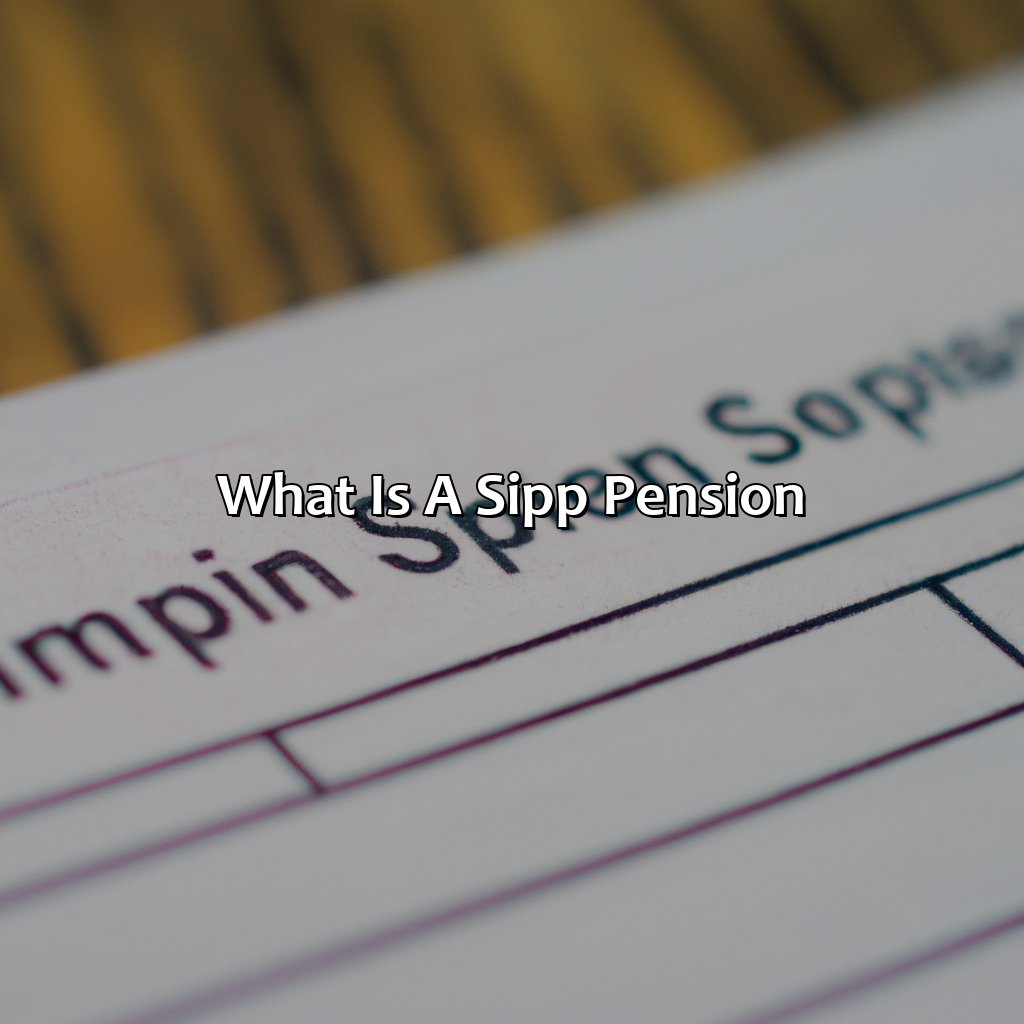What Is A Sipp Pension?
Key Takeaway:
- A SIPP pension is a self-invested personal pension that allows individuals to invest in a range of assets, including stocks, shares, and commercial property, giving them greater control over their retirement savings.
- Features of a SIPP pension include flexibility, investment options, and tax benefits. SIPP pensions offer greater flexibility than traditional pension plans, allowing individuals to decide how much and how often they contribute to their pension, and how they invest their savings.
- Advantages of a SIPP pension include control and flexibility, tax efficiency, and the potential for increased returns. With a SIPP pension, individuals have greater control over their investments and can benefit from tax relief on their contributions, as well as potentially higher returns on their investments.
Struggling to understand what a SIPP pension is? You’re not alone. In this article, we will explain in simple terms the basics of a SIPP pension and discuss how it can help you achieve a secure retirement. Get ready to make your retirement planning easier!
What is a SIPP Pension?
SIPP Pension – All You Need to Know
SIPP Pension is a Self-Invested Personal Pension designed to offer individuals more control over their pension investments. It allows the pension holder to invest in a wide range of assets, including stocks, property, and bonds. Learn more about where pension money comes from.
With a SIPP Pension, the pension holder gets more flexibility in managing their pension investments and can choose from a vast selection of investment opportunities via a single tax-efficient account.
How a pension is paid out can be a confusing topic to understand, especially when it comes to SIPP pensions. They may require considerable time, involvement, and financial knowledge to manage. They tend to be more expensive than traditional pensions, but their benefits can outweigh the costs.
Unique to SIPP Pensions, they can allow the transfer of commercial property held within a business to a SIPP Pension, which can provide additional tax benefits for business owners. Learn more about money purchase pension plan and how they can benefit you.
Interestingly, SIPPs have been growing in popularity over recent years, with over one million SIPP accounts in the UK currently, reflecting the trend of individuals wanting greater control over their pension investments.
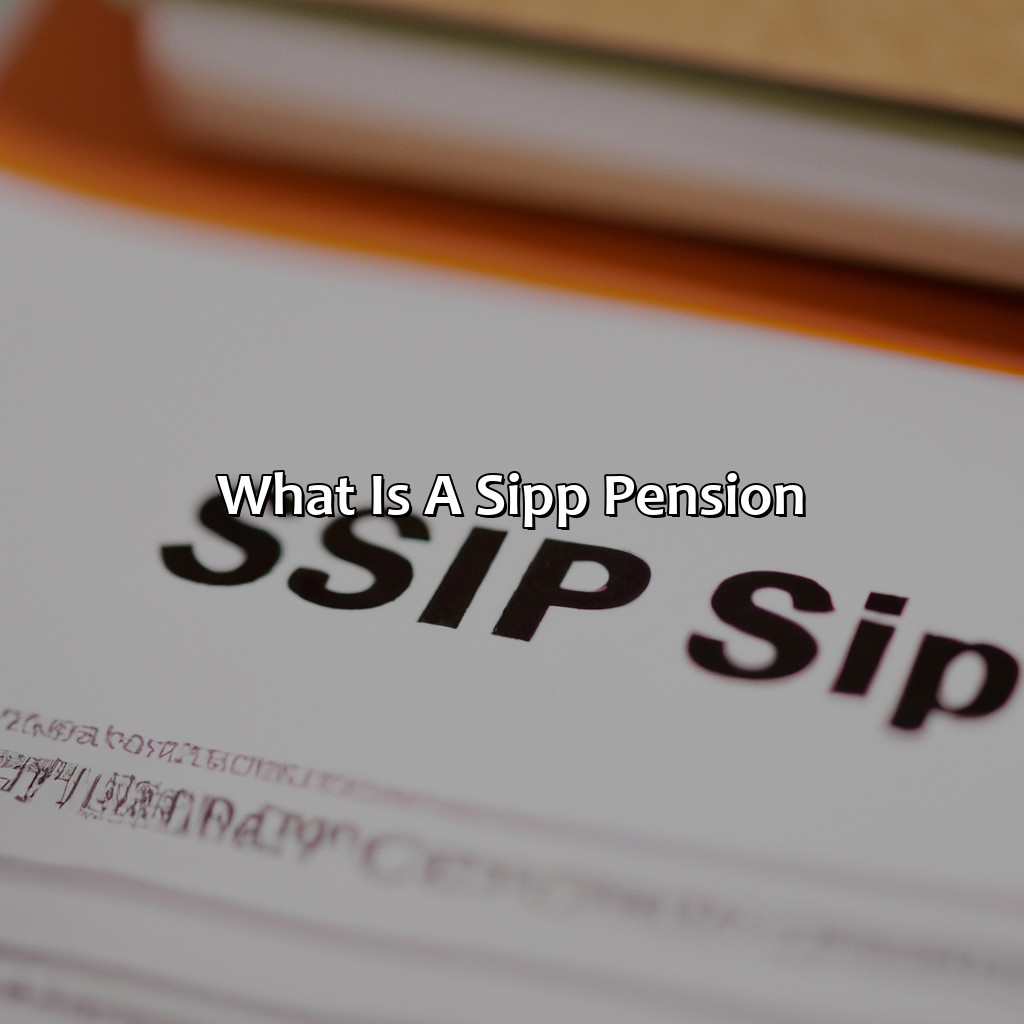
Image credits: retiregenz.com by Joel Washington
Features of a SIPP Pension
Recognize the perks of each sub-section for understanding a SIPP pension’s features. Flexibility offers control over investments. Plus, there are diverse investment options. And don’t forget the long-term financial advantages of tax benefits!
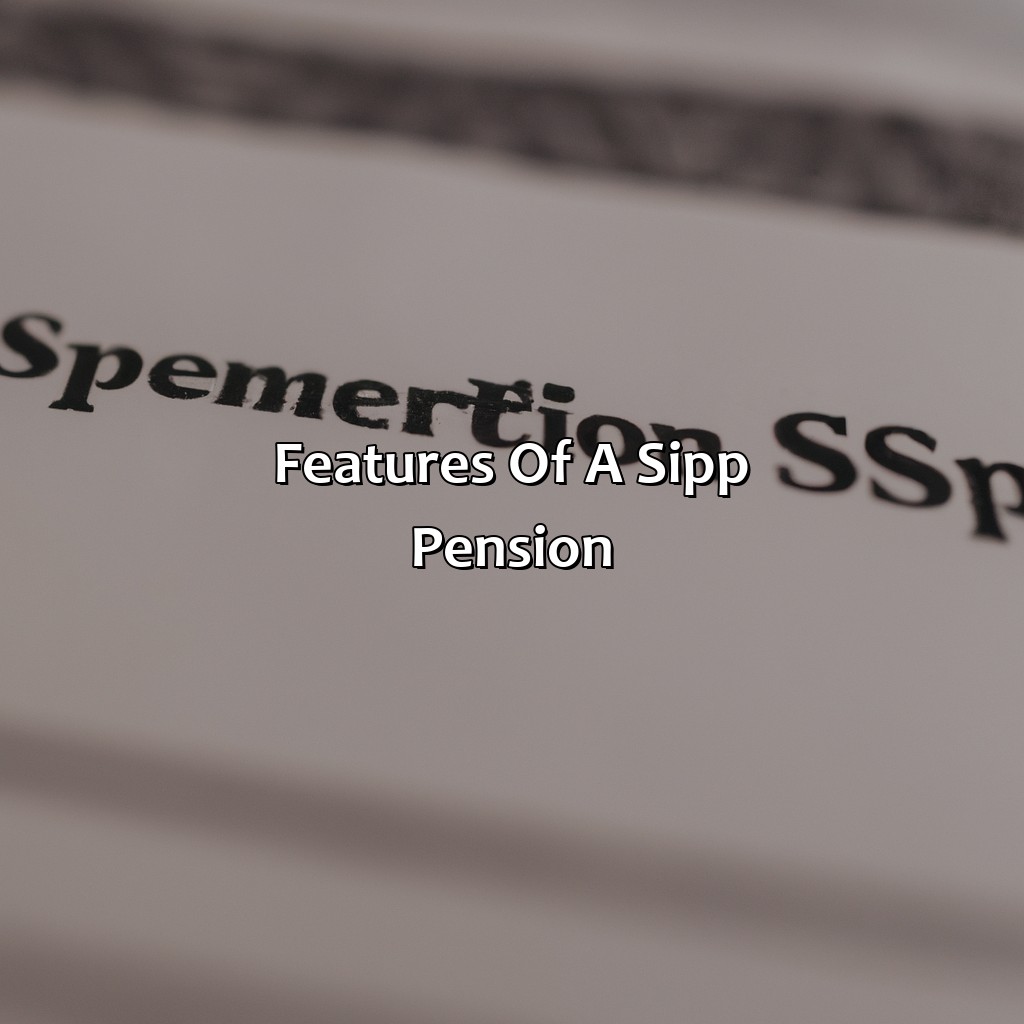
Image credits: retiregenz.com by Harry Jones
Flexibility
A SIPP pension plan offers an exceptional level of flexibility for investors. The flexibility in a SIPP can be attributed to its ability to accommodate a wide variety of investments, including stocks, bonds, property, and mutual funds.
Investors in a SIPP pension can also change their investment portfolio as desired based on their preferences. Besides, investors have the option of selecting how much they would like to contribute towards their retirement savings each year.
In addition to that, a SIPP plan allows individuals who are still working the opportunity to continue building their pension savings while retired individuals can start drawing down on their savings with ease. This aspect provides more flexibility for individuals seeking ways to generate quality income in retirement.
It is essential for investors in a SIPP scheme always to review and update their investment strategies regularly. For instance, if the market conditions or personal financial circumstances change frequently, investors should adjust their portfolios accordingly by adjusting allocations or switching over assets.
Overall, investing in a SIPP scheme provides excellent investment opportunities while offering much-needed flexibility that many other pensions may not offer. Investors should familiarize themselves with the features on offer and consider seeking professional advice before making any significant decisions related to investing in such schemes. If you want to learn more about pension plans, you can read about DB pension plans.
Go ahead, sip on that coffee while we dive into the investment options for your SIPP pension- just don’t spill it when you hear about the potential returns.
Investment Options
SIPP Investment Possibilities
With SIPP pensions, investors have a range of investment possibilities. You can invest in stocks, bonds, mutual funds, exchange-traded funds (ETFs), real estate investment trusts (REITs), commodities and more.
SIPPs offer a wide range of investments that allow for diversification and the opportunity to increase your wealth over time. You can also enjoy tax benefits on any profits or dividends earned from your investments.
Remember that investing involves some risks and you should allocate your portfolio across different assets according to your investment objectives and risk tolerance levels.
Investing wisely with SIPPs can give you greater flexibility in planning for retirement, making it an attractive option.
Don’t miss out on the benefits of a SIPP pension – start exploring your investment options today.
Saving for retirement never tasted so sweet, thanks to the tax benefits of a SIPP pension.
Tax Benefits
Investment returns generated from SIPP pensions hold unparalleled tax benefits due to their unique tax structures. Contributions from individuals receive income tax relief at the individual’s marginal rate, creating an immediate reduction in taxable income. Furthermore, any investments within a SIPP pension are exempt from capital gains tax and UK income tax. In addition, there is no inheritance tax on the pension fund upon death.
The flexibility of SIPP pensions allows the investors to take up to 25% of their savings as a lump sum payment once they reach fifty-five years old, with no requirement to purchase an annuity. SIPPs can also save on taxes by passing assets directly to beneficiaries with minimal IHT liability. Above all, SIPPs allow investors who want ultimate control over their retirement planning combined with significant tax advantages.
As taxpayers look for ways to save money while preparing for retirement, SIPPs remain one of the best options available. Many people have already realized that SIPPs offer distinct advantages when it comes to saving for retirement compared with other types of pensions.
SIPPs are a lucrative option for savers looking for greater flexibility and control while investing for their golden years. Consider Kerry, who had been investing in traditional managed funds when her financial adviser recommended opening a SIPP account. After comparing how much income he could receive during his retirement by switching to her newly chosen low-cost investment care management platform – she said goodbye to her old funds and hello to better returns! Who needs a genie when you have a SIPP pension granting your retirement wishes?
Advantages of a SIPP Pension
You must take into account all the advantages of a SIPP Pension. Control and flexibility, tax efficiency, and increased returns are just some of them. You have more control over your pension with controlled and flexible investments. Tax efficiency could mean more money in your pocket. Plus, increased returns could help you reach your financial goals faster.
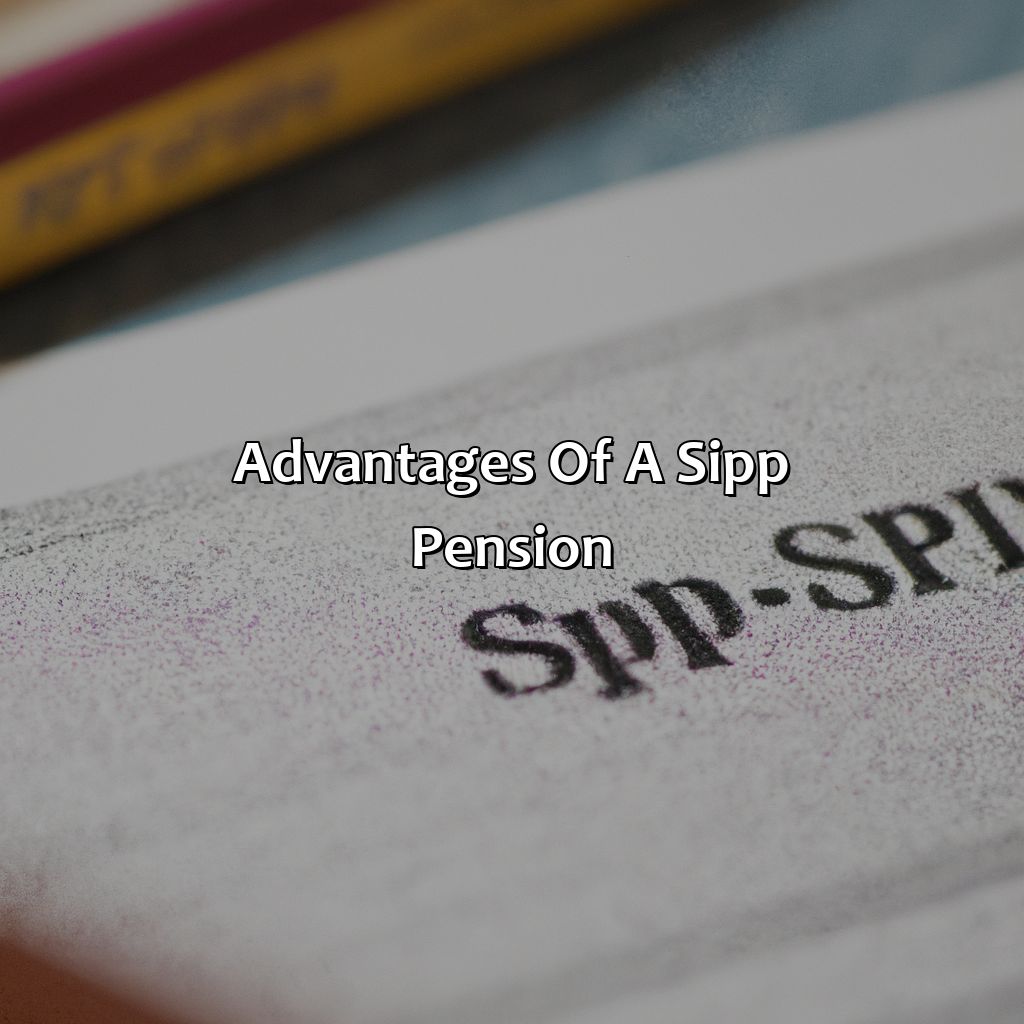
Image credits: retiregenz.com by Adam Washington
Control and Flexibility
Maximizing Control and Achieving Flexibility in Retirement with SIPP Pensions
SIPP pensions provide greater control and flexibility compared to other traditional pension plans. With a SIPP, you can select from a vast range of investments, such as bonds and shares, tailored to your risk appetite and investment goals. You have the autonomy to monitor and manage your pension investments regularly, adjust your portfolio allocations when necessary, and choose when to withdraw funds as part of your retirement income.
In addition, SIPP pensions offer flexibility in terms of access to pension benefits. Individuals who reach 55 years old can access their pension pot anytime without advice or guidance fees. Moreover, if you prefer not to use an annuity to purchase an income for life or want more time before doing so, you can hold off annuitizing until age 75 or opt for deferred pension.
Pro Tip: Before opening a SIPP account, explore the various options available carefully and seek professional advice if necessary. Investing in a diversified portfolio that spreads risk across asset classes is critical in achieving long-term financial security through retirement.
Who needs a fairy godmother when you have a SIPP pension? Tax efficiency is the ultimate magic trick for keeping your money in your pocket.
Tax Efficiency
Maximizing Tax Benefits with a SIPP Pension
One of the key advantages of a SIPP pension is its tax efficiency. Contributions are made pre-tax, and income and capital gains within the fund are tax-free. Withdrawals are subject to income tax, but individuals may have more control over when they take distributions in retirement, potentially reducing their tax liability.
SIPP pensions also offer greater flexibility than traditional pension plans, allowing for wider investment options beyond just stocks and bonds. This can lead to higher returns and potential long-term growth opportunities. If you’re interested in learning more about pension funds, a SIPP pension is definitely worth considering.
Furthermore, according to a study by Royal London, those who use a SIPP accumulate an average of 40,000 more in retirement savings compared to those without one.
Your savings won’t just sip away, they’ll actually grow with a SIPP pension!
Increased Returns
Maximizing Your Investment through a SIPP Pension
Getting the best returns on your investment is crucial, and one way to achieve this is by utilizing a self-invested personal pension (SIPP). This type of pension plan allows you to have control over your investments and tailor them according to your risk tolerance and investment goals. With SIPPs, you can invest in a wide range of assets such as stocks, bonds, mutual funds, and more.
By investing in a diversified portfolio of assets, you increase your chances of getting higher returns than traditional pension plans. The flexibility and freedom offered by SIPPs make it an attractive option for individuals who want to maximize their investment potential.
In addition to flexibility and freedom, SIPPs offer tax advantages such as tax-free growth on your investments. You also receive tax relief from the government on contributions made to your SIPP account. Want to know more about defined contribution pension plan? Click here.
Investing in SIPPs has been known to deliver exceptional returns that surpass traditional pension plans. In recent years, SIPPs have gained popularity due to their ability to deliver higher returns than other types of pensions.
One notable example includes a UK-based investor who invested in commercial property through their SIPP. The investor’s retirement fund grew significantly due to the steady rental income generated from the property. This demonstrates how investing through SIPPs offers considerable benefits that can help investors’ portfolios grow faster.
Overall, understanding the advantages of a SIPP pension is critical for securing financial independence during retirement. By utilizing a SIPP pension plan, investors can take control of their investments and potentially achieve better returns compared to traditional options.
Who needs a retirement plan when you can just hope for a sudden inheritance? Oh wait, that’s not a plan…let’s discuss setting up a SIPP Pension instead.
How to Set Up a SIPP Pension
A SIPP pension is a Self-Invested Personal Pension, which enables individuals to control their investments personally. To help you set up a SIPP pension, here’s a brief guide:
- Choose a SIPP provider who offers a robust investment platform with diversified investments to choose from.
- Open an account, provide required paperwork and transfer funds.
- Choose investments based on your risk appetite and investment goals.
- Regularly monitor the performance of your investments and adjust your portfolio as required.
It’s important to note that with a SIPP pension, the responsibility of choosing profitable investments lies solely with the account holder.
To maximize returns, consider investing in diversified assets, such as stocks, bonds, and real estate investment trusts. How does a pension work in the UK? A Sipp pension also offers tax benefits, such as tax-free growth and flexible withdrawals.
It’s crucial to understand the basics of retirement income, and one of them is having knowledge about public pension like Sipp pension. Consider investing in diversified assets and tax-free growth, along with flexible withdrawals to build a secure retirement fund.
It’s recommended to seek professional financial advice before setting up a SIPP pension to ensure that the investment aligns with your retirement planning goals.
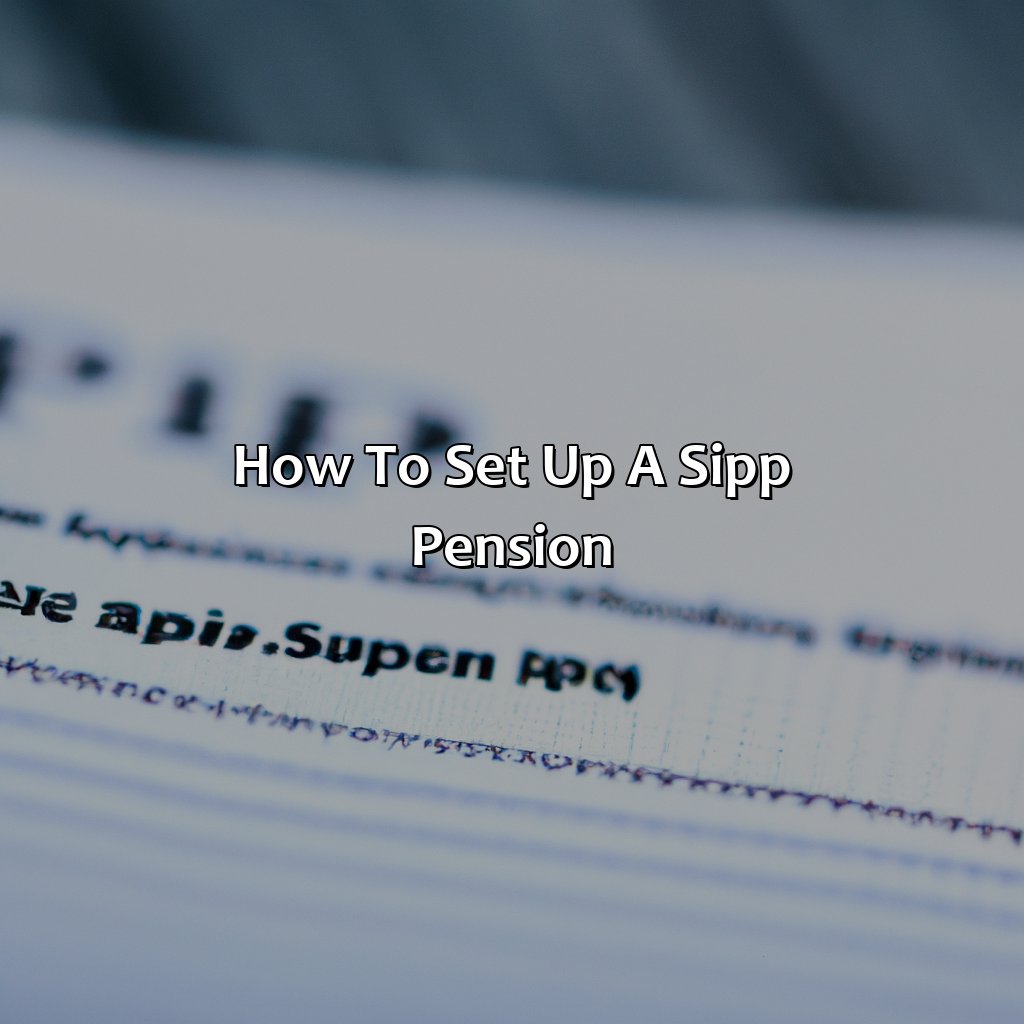
Image credits: retiregenz.com by Harry Duncun
Choosing a SIPP Pension Provider
Investing in a self-invested personal pension (SIPP) is a crucial step towards securing your future. To make a wise investment, it is essential to choose a SIPP Pension Provider that aligns with your financial goals, investment strategy and preferences. Here are some key points to consider while Choosing a SIPP Pension Provider:
- Investment Options: Look for a SIPP provider that offers a wide range of investment options, including stocks, shares, funds, and bonds. Ensure the provider’s investment options align with your investment strategy, and preferences.
- Charges: Understand the SIPP provider’s charging structure, including ongoing fees, platform fees, transaction fees and other costs. Pay attention to hidden fees, as these can impact your investment returns significantly.
- Flexibility: Make sure your SIPP provider offers flexibility in terms of investment choices, contribution limits, and accessibility to your investments. Choose a provider that allows you to switch investment options, change contribution amounts and access your funds as per your needs.
- Reputation: Choose a SIPP Pension Provider with a solid reputation in the market, with a track record of providing quality services and reliable investment solutions to their clients.
It is worth noting that choosing the right SIPP Pension Provider is a crucial decision that can significantly impact your financial security in the long run. Therefore, take the time to research, compare and evaluate all the available providers to make an informed choice.
When investing in a SIPP, the fear of missing out on potential returns can be overwhelming. Don’t let this fear consume you. Remember, investing is a long-term game, and it is crucial to make a wise decision that aligns with your financial goals. Take your time, weigh the options, and choose the SIPP Pension Provider that suits your needs the best.
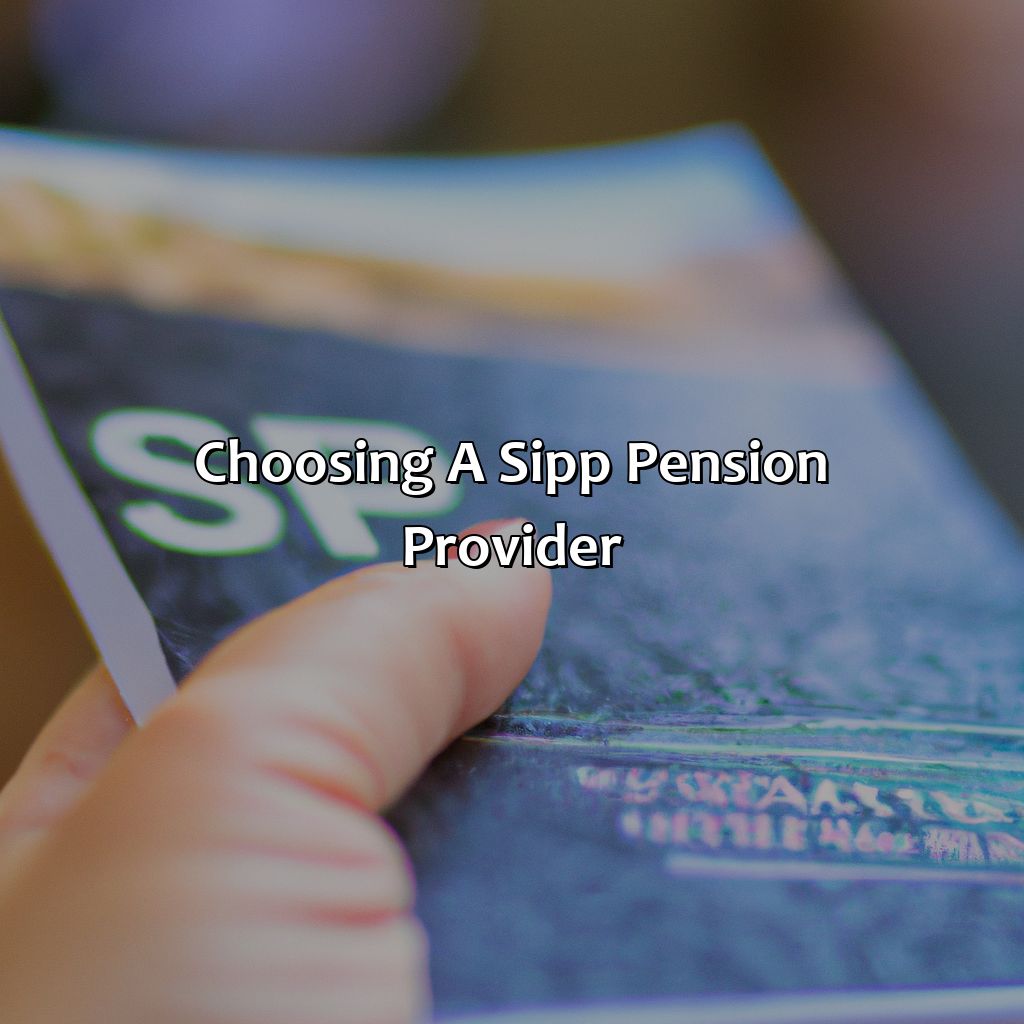
Image credits: retiregenz.com by Harry Woodhock
Some Facts About What Is A SIPP Pension:
- ✅ A SIPP (Self-Invested Personal Pension) pension is a type of private pension that allows individuals to choose where their money is invested. (Source: Money Advice Service)
- ✅ With a SIPP pension, individuals have a wide range of investment options, including stocks, shares, and commercial property. (Source: The Telegraph)
- ✅ SIPP pensions offer tax benefits, such as tax relief on contributions and tax-free growth on investments within the pension. (Source: Which?)
- ✅ Unlike traditional pensions, the value of a SIPP pension is based on the value of the investments held within it, rather than a set amount paid out at retirement. (Source: MoneySuperMarket)
- ✅ A SIPP pension can be a good option for those who want to take an active role in managing their retirement savings. (Source: Hargreaves Lansdown)
FAQs about What Is A Sipp Pension?
What is a SIPP pension?
A Self-Invested Personal Pension (SIPP) is a type of pension that allows individuals to choose and manage their own investments in a tax-efficient manner. It offers a wide range of investment options, including stocks, bonds, and commercial property, among others.
What are the benefits of a SIPP pension?
Some of the benefits of having a SIPP pension include a wider range of investment options, tax relief on contributions, and the potential for higher returns through effective investment management.
Who is eligible for a SIPP pension?
Anyone in the UK can invest in a SIPP pension, whether employed or self-employed. However, individuals must be under 75 years old to make new contributions to a SIPP.
How much can I contribute to a SIPP pension?
The annual contribution limit for a SIPP pension is currently 40,000, but this may vary depending on your age, earnings, and other factors. Alternatively, you can contribute up to 100% of your annual earned income, or 3,600, whichever is greater, if you don’t have any earnings.
Can I transfer my existing pension to a SIPP pension?
Yes, it is possible to transfer your existing pension to a SIPP pension. This may be beneficial if you are looking for greater investment options and flexibility than your current pension offers.
What are the charges associated with a SIPP pension?
The charges for a SIPP pension may vary depending on the provider and the investments chosen. Charges may include an annual account fee, dealing fees, and investment management fees.
